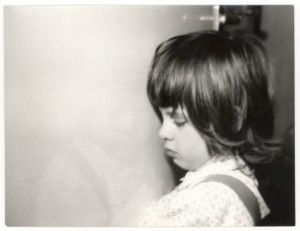 There is a difference between a child who needs to grieve and one who is being whiney, selfish, or demanding.
There is a difference between a child who needs to grieve and one who is being whiney, selfish, or demanding.
How to tell the difference?
The first thing I must say is pray for wisdom. Regardless of my “points” below, God has the wisdom that you need for each child and each situation. (See James 1 in the Bible.)
Some analytical points that God might use to guide you:
- A “whiney” child often sounds more whiney than sad. Listen carefully. Though sometimes it is really hard to tell the difference.
- Watch the child’s face. A “whiney” face may look more angry and disgruntled; a sad face may look more distraught. But again, sometimes it is really hard to tell the difference. One of our children used to look angry when they were actually repentant (because they were angry at themselves because they had messed up). Similarly, faces can be confusing with selfishness vs. grief.
- A demanding child might express more anger than sadness. Children can be demanding because like all of us, children are born sinful and selfish. However, it is possible that a child has become demanding and angry because their attempts at expressing sorrows have been unvalidated or ignored, or worse: shut down, reprimanded, or met with punishment.
Another aspect to keep in mind is context.
Is the child facing struggles in his or her life (such as physical ailments like I mentioned before)?
Have significant losses come into their life?
Are their parents facing difficulties? Even if parents try to “hide” financial troubles, relationship problems, etc., children often know somehow, even if they don’t know details. Sometimes it is better to bring the details to light (and together take them to the Lord); sometimes not.
Now, how to validate, if you see that the child is experiencing legitimate grief for one reason or another…. Consider these ideas:
- Drop everything you are doing and thinking about and think only about the child.
- Hug, if the child likes hugs; gently wipe away tears (but DON’T say to stop crying).
- Say something simple, such as, “I’m sorry, this is hard.” or “I’m sorry, this is not fair.”
- Ask the Lord if more words are needed.
- If the child is young and in certain situations, distraction may be appropriate, especially after the grief has been expressed some.
- Comfort in a way that speaks to the child.
- Consider sharing something to empathize, but ONLY if it does not minimize what the child is going through.
Children are our most precious resource. Let us guide them gently, and with great compassion, through their sorrows.
Christa Upton Black Hills Picture Books PO Box 293 Custer, SD 57730

Dear Christa,
Thank you. God is using your wisdom to bless this “child”_I’m 63_who was not allowed to grieve.
Love, Judy S.
Oh, dear Judy, that makes me cry to think of it!!!! You are always such a blessing and FULL of wisdom on the mcs group. You turned out strong anyway!!!!! My compassionate Mom’s name is Judy, too. 🙂 You turned out compassionate like her as well. Love, Christa